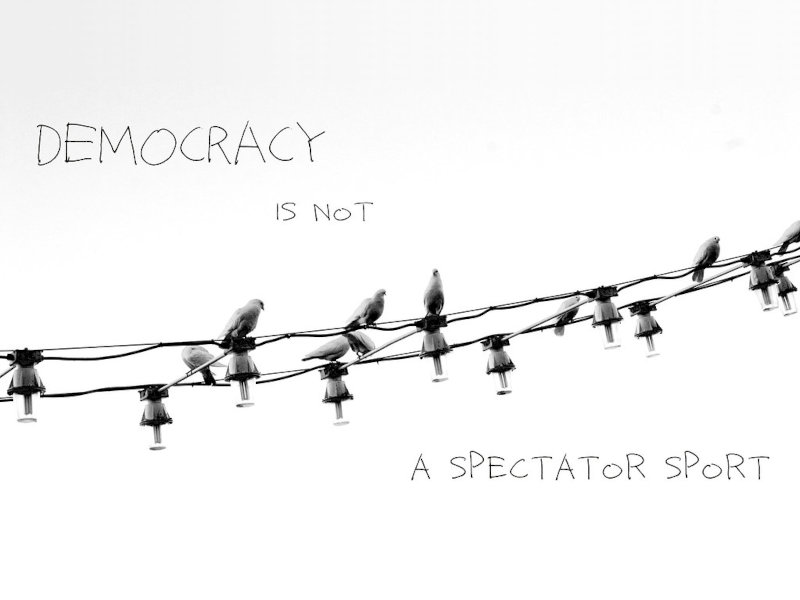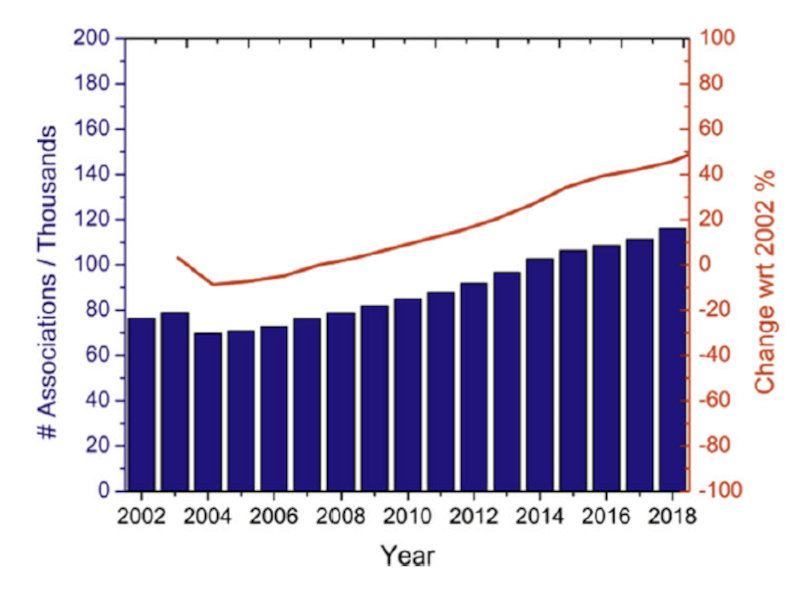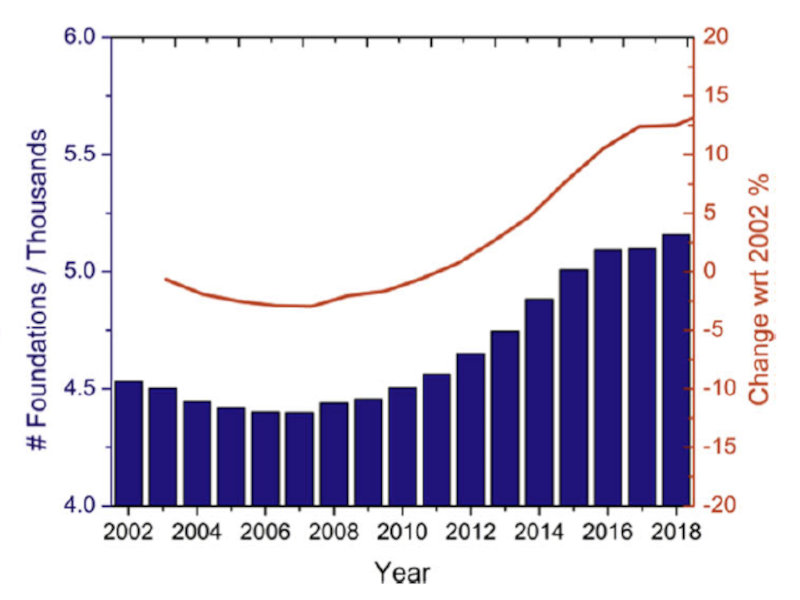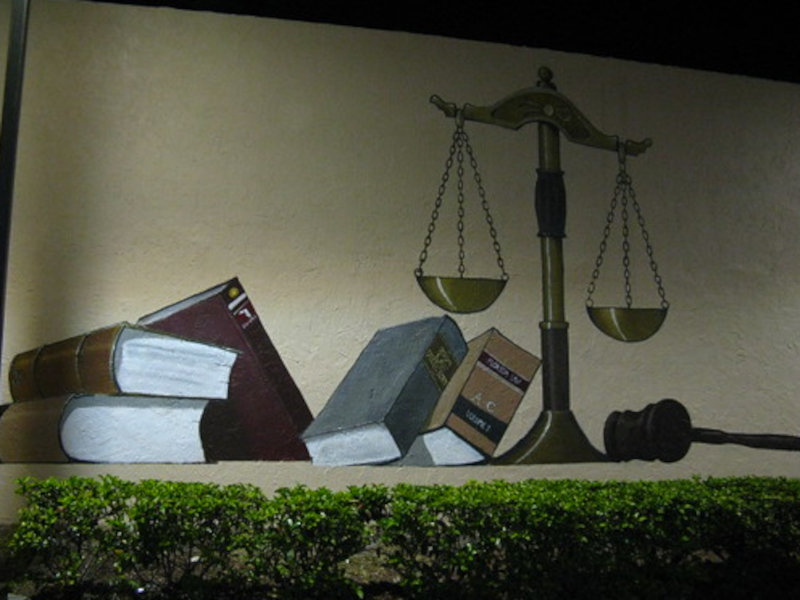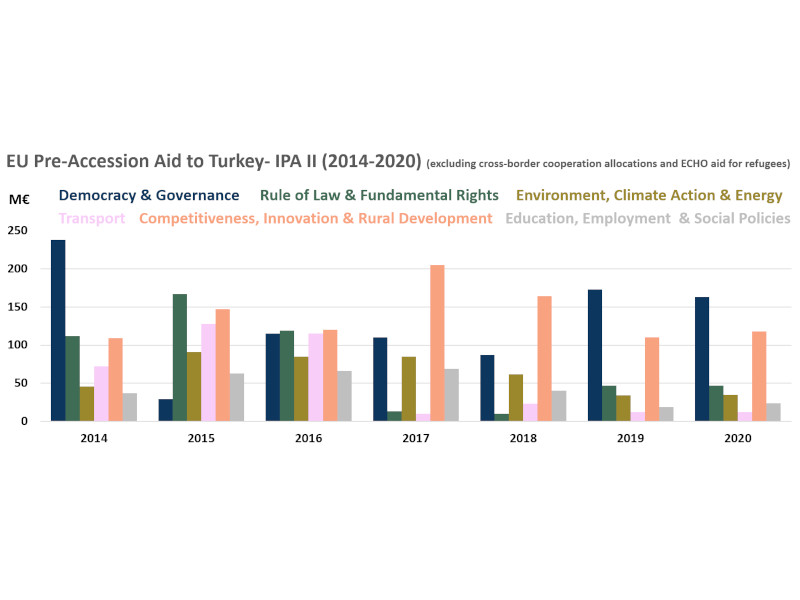CRAFT
Politicisation of Civil Society and the Judiciary in Turkey
About
To Craft an Authoritarian Regime: Politicisation of Civil Society and the Judiciary in Turkey
The project aims to investigate the causes and consequences of the politicisation of civil society and the judiciary.
Politicisation refers to the control and utilisation of the non-partisan and independent structures of checks and balances by a political authority to consolidate power illegitimately and eliminate political dissent.
Politicisation of civil society and the judiciary is closely related to the current global decline of democracy -known as democratic backsliding- and the rise of electoral autocracies.
Through original data, the project shows how the judiciary and civil society play a myriad of roles in empowering democratic backsliding and regime change.
Grounded in-depth case study design focused on Turkey, the project focuses on three major areas:
- cooptation of civil society
- a systematic assessment of the political bias in high courts’ decisions reflecting the incumbent’s political interests
- the implications of politicised judiciary and civil society on the EU-Turkey relations.
Research Questions that CRAFT addresses are as in the following:
- How do hybrid regimes politicise civil society and the judiciary?
- What role do the courts and civil society play in democratic backsliding and regime transition?
- How do the oppositional civic groups and activists re-organise to seek influence and challenge the government practices through civil society and the judicial system?
- How does the EU respond to the politicisation of these two crucial institutions in its largest candidate country?
Research
1) Civil Society
The aim of the civil society pillar of the project is to study the AKP’s dual strategy of ‘strategic repression and co-optation’ of civil society. Turkey witnesses an explosion of civil society organisations (CSOs) lately. The feverish expansion of civic associations remains at odds with the low public interest in civic engagement and the restricted political and legal environment for CSOs in Turkey. CRAFT takes on this puzzling expansion of civil society in a two-fold approach:
- Exploration of the cooptation dynamics and the creation of a government-dependent civil society sector:
CRAFT explores the relationship between the coopted CSOs and the political authority and the role coopted CSOs play in deepening the societal reach of undemocratic practices. It reflects on political polarisation within civil society between autonomous but repressed CSOs facing backlash and the ‘government-dependent CSOs’, which constitute a sizeable part of Turkey’s civil society with their vast organizational resources, but no autonomy from the political authority. - Investigation of the democratic civic forces within civil society:
CRAFT investigates how autonomous civil society organizations and social movements redefine their goals and re-organise themselves to remain relevant under political and legal pressure. It investigates the open-ended contest between elected rulers who gradually erode democratic practices and pro-democracy groups’ counter-mobilizations to keep democracy alive.
2) Judiciary
The aim of the judiciary pillar of the project is to measure the politicisation of the judicial output of high court. It also seeks to understand when high courts are drawn into politics during the process of democratic backsliding and the political and institutional conditions the judiciary submits to the political authority. CRAFT explores litigation and legal activism as tools to contest top-down measures of the executive by the citizens and civil society organizations concerning demands for environmental or social justice and human rights or by the opposition political parties. The project further investigates why and how the opposition, activists and dissidents resort to judicial contestation and legal mobilization and under what conditions the courts demonstrate the willingness and ability to decide in accordance with the constitutional rights and national and international human rights legislation under conditions of democratic backsliding.
3) European Union
The EU pillar of the project has a dominantly policy-relevant focus. Given the global wave of democratic backsliding, the EU has announced a change in its aid strategy to candidate and associated countries. Accordingly, the EU will decrease direct pre-accession aid to governments that fail to meet EU democratic standards and prioritise direct aid to empower civic and democratic actors. This requires the EU to design alternative policies and reach out to the grassroots movements and the civic space where democratic norms and values survive and resist authoritarianisation. The project scrutinizes the implications of the politicised judiciary and civil society in Turkey on the future of the EU-Turkey relations, and explores concrete policy-relevant alternatives to the EU’s traditional aid policy that put the candidate party government as the main interlocutor. The findings will offer a forward-looking analysis of how the gap in the EU-Turkey leverage-linkage nexus can be improved through re-routing EU assistance for the judiciary and civil society
Methods
CRAFT builds on original data and mixed methodology research design. To identify politicization patterns, the project melds fieldwork, interviews and statistical analysis of categorical data.
For the civil society component, the project works ‘from ground up’ and studies the topic within its context combining semi-structured interviews with representatives of both government-dependent and autonomous civil society organizations, participant observation by attending selected seminars, events and other public meetings organized by dependent organizations, and the narrative inquiry of CSO activists and volunteers in these organizations.
The investigation of the judiciary proceeds in three steps: identify a set of politically salient issues subject to high courts’ adjudication in Turkey, creation of an original statistical dataset and data analysis, corroboration with qualitative data to investigate if, to what extent and why (politicised) courts also become prominent venues for legal defiance.
Finally, the investigation of the EU aid in an autocratization context is built on documentary analysis, interviews with representatives of civil society, EU representatives in Brussels and the EU Delegation in Turkey.
Publications
Forthcoming
Acts of Compliance and Tactful Contention: The Polarized Terrain of Women’s Organizations in Turkey under Authoritarian Pressure
Forthcoming in Lobbying the Autocrat: The Dynamics of Policy Advocacy in Non-Democracies, M. Grömping and J. Teets, Eds.
This chapter examines how the societal and political conditions of competitive authoritarian regimes (CA) shape the ecology of interest groups. The chapter demonstrates that civil society and mobilization of interest groups therein is different in CA regimes compared to both consolidated autocracies and liberal democracies. There is a unique set of conditions affecting the ecology and mobilization of interest groups in these regimes. Pockets of civic resistance, relative competitiveness of the oppositional groups, political pressure in the form of cooptation and selective repression contribute to shaping interest groups’ organizational forms and entry and exit terms. I treat Turkey under the rule of the Justice and Development Party (AKP) (2002-present) as an illustrative case. Specifically, I focus on interest group mobilization in the area of gender politics by highlighting the role of various women’s organizations that legitimize or challenge the AKP’s authoritarian gender politics.
Civil Society and Latent Mobilization under Neoliberal Authoritarian Governance
In print 2021 in Authoritarian Neoliberalism and Resistance in Turkey Construction, Consolidation, and Contestation, Imren Borsuk, Pinar Dinc, Sinem Kavak, and Pinar Sayan. Eds.
This chapter reflects on the impact of Turkey’s neoliberal authoritarian governance on the transformation of civil society with a particular focus on latent counter-mobilization. The first section investigates the current state of civil society under the rule of the Justice and Development Party (AKP). On the one hand, the AKP has gradually increased repressive measures targeting autonomous organizations and activists through judicial harassment and new regulations. On the other hand, it has cultivated a loyal government-oriented civil society sector (GONGOs). New pro-government actors have emerged to take on the responsibilities of the state as a result of the neoliberal restructuring. They fulfill two aims: softening the immediate effects of the state’s withdrawal from social provision and generating a bottom-up consent for neoliberal authoritarian governance. The second section analyzes resistance against the authoritarian neoliberalism that has emerged at the unexpected intersections of ideologies and everyday experiences. It delves into the case study of a unique social movement that fuses class politics with Islamic social justice. Based on insights from original fieldwork and interviews with activists conducted in 2018-2019 in Turkey, this study demonstrates that the syncretic amalgamation of socialist ideology with Islamic justice, simultaneously challenges the AKP’s neoliberal exploitation, instrumentalization and politicization of religion and authoritarian governance.
Published
At the Intersections of Populism, Nationalism and Islam: Justice and Development Party and Populist Reconfiguration of Religion in Politics
British Journal of Middle Eastern Studies, 2021
DOI: 10.1080/13530194.2021.1972794
This study examines the relationship between populism, nationalism and religion through evidence from Turkey’s Justice and Development Party (AKP) rule. The literature on populism’s rapport with nationalism has developed in isolation from the burgeoning theorization of populism-religion nexus. This study has a two-fold contribution. Theoretically, it advances a historical approach to deepen our understanding of the widespread appeal of contemporary populism. It argues that populism can capitalize on unique contextual fusions of religion and ethnic (secular) nationalism that originate from historical legacies and ideas of modern nation-building to (re)construct the antagonistic discourse dividing the society into two camps of ‘the people’ and ‘the elites’. Empirically, by drawing upon discourse theory, the empirical analysis of the AKP’s public discourse, the study offers a nuanced approach to the AKP’s much-debated stance on religion as an ideology versus instrument. Three areas are investigated to exemplify AKP’s construction of populist dichotomy: a) ethnic and religious minorities, b) women, and c) youth. The analysis reveals that the AKP has built three different, and at times, contradictory articulations of ‘‘the people as underdogs’, ‘people as nation’ and ‘people as the ummah’ against ‘the secular elites’, ‘the enemies within’ and ‘the West’, respectively.
Home State Oriented Diaspora Organizations and The Making Of Partisan Citizens Abroad: Motivations, Discursive Frames, And Actions Towards Co-Opting The Turkish Diaspora In Europe
Diaspora: A Journal of Transnational Studies 2021 27 (2).
Published online: July 5, 2021
DOI: 10.3138/diaspora.21.2.2021.05.20.2.
What motivates diasporas to support undemocratic rule in their countries of origin while enjoying democratic freedoms in their countries of settlement? This study adopts a meso-level approach to answer this question, and focuses on the Turkish diaspora in Europe as a case study. Lately, the diaspora governance literature has focused on official diaspora institutions and the policies of countries of origin. This study, alternatively, highlights “diasporic civic space” as an arena entrenching authoritarian practices “at home.” It investigates the conditions under which diasporic civic space can be coopted by undemocratic countries of origin and the role of “home state oriented diaspora organizations” in this process of cooptation. The study shows that diasporic civic space can offer resources to undemocratic regimes to mobilize previously dormant diaspora communities and create a support base abroad that is driven by nationalism and partisanship. The empirical discussion unveils four factors behind the successful mobilization of diasporas by undemocratic countries of origin: (1) nationalist sentiments among the diaspora; (2) motivations to get a share from the perks that may be meted out by home country government; (3) feelings of insecurity, fear, and marginalization as immigrants; and (4) the desire to assert one’s identity and cultural ties vis-à-vis the majority in countries of settlement. The findings are based on the case of the Turkish diasporic civic space in Europe, which has recently been mobilized by a diaspora organization with political ties to the Justice and Development Party (AKP). Original data are drawn from semi-structured interviews conducted in 2018–2019 with members and representatives of a major pro-AKP diaspora organization known as the Union of International Democrats (UID), as well as Alevi, Kurdish, and Islamist/conservative diaspora organizations in Sweden, Austria, Bosnia and Herzegovina, and Germany. The findings contribute to the understanding of undemocratic home states’ non-coercive and de-territorialized governance practices beyond their borders.
Fuzzy Borders between Populism and Sacralized Politics: Mission, Leader, Community and Performance in “New” Turkey
Politics, Religion & Ideology, 2020, 21 (1)
Published online: March, 4 2020
Why do right-wing populist leaders routinely resort to religious appeals? How should the religious symbolism in populist politics be interpreted? To address these questions, this study shifts attention to symbolic, ritualistic and emotive mobilization by populism through insights from cultural sociology and ‘sacralization of politics’. Populists in power sacralize the political arena by attributing nominally secular entities such as the nation, the state and the leader ‘religious’ traits as objects of loyalty and faith. By creating a syncretic amalgamation of the secular and religious domains, they perpetuate the dichotomy between the people and the powerful enemy, despite changing boundaries of both categories. Using the case of Turkey as illustration, the study examines three features of sacralized politics: (1) mission led by a sacrosanct leader, (2) consecration of elect community/the nation, and (3) performance politics that substitutes democratic participation. The findings suggest that beyond the instrumental use of religious tropes for political gain, right-wing populists rally support by selectively evoking the ‘cultural toolkit’ available to them. Furthermore, right-wing populists also construct a specific group identity by evoking collective memory. Researchers should pay more attention to populists’ embeddedness in cultural structures in which religion remains a powerful pillar and resonate well with their audiences.
Work for the Nation, Obey the State, Praise the Ummah: Turkey’s Government-oriented Youth Organizations in Cultivating a New Nation
Ethnopolitics 2021 20 (4)
Published online: October, 17 2019
DOI: 10.1080/17449057.2019.1676536
Modern Turkey’s emergence was a nationalist struggle that aimed to cultivate youth as secular citizens. Almost a century later, the ruling Justice and Development Party (AKP) attempts to re-model youth through a new ethno-religious nationalist project. This study argues that different from the secular Kemalist social engineering that dominated the state’s youth policy for decades, the AKP relies on the intermediary agency of Islamist-conservative and government-oriented civil society to shape young generations and convey ethno-religious nationalism to youth. Seventeen government-oriented youth organizations illustrate the extent of the Justice and Development Party’s (AKP) quest for a new national identity and cultural hegemony within the broader context of Turkey’s steady decline into an authoritarian regime. The findings—based on original fieldwork conducted between October 2017–June 2019—demonstrate youth organizations’ country-wide grassroots engagement in four categories: indoctrination, extra-curricular training, service provision in the education sector, and street activism and humanitarian work. Their self-defined goals, ideological roots and grassroots reach inject a new disciplinary ethos and statist values in youth towards shaping them as Muslim and nationalist ‘ideal citizens’. The study offers insights on the societal aspects of authoritarian regime building and cautions that crafting ‘successful’ authoritarian regimes is not a one-way process that takes place only at the formal institutional level. A broad range of societal players and coalitions, including civil society, play a critical role in authoritarian regime building.
Resources
Contributions to Public Debate
- Democratic backsliding in Turkey and around the world, 2021
- Politics on Women under Populism and Autocratization, Istanbul Political Research Institute, 2020
- Interview on Authoritarian Populism. Medyascope, 2020
- Interview on Populism, Authoritarianism and Women. Medyascope, 2020
- Interview on Cultural Hegemony and the Justice and Development Party (AKP). Medyascope, 2020
- Youth Groups Cultivating Religious Nationalism. Turkey Book Talk, 2019
- Youth Organizations in the Building of Authoritarian Regimes. Medyascope, 2019

